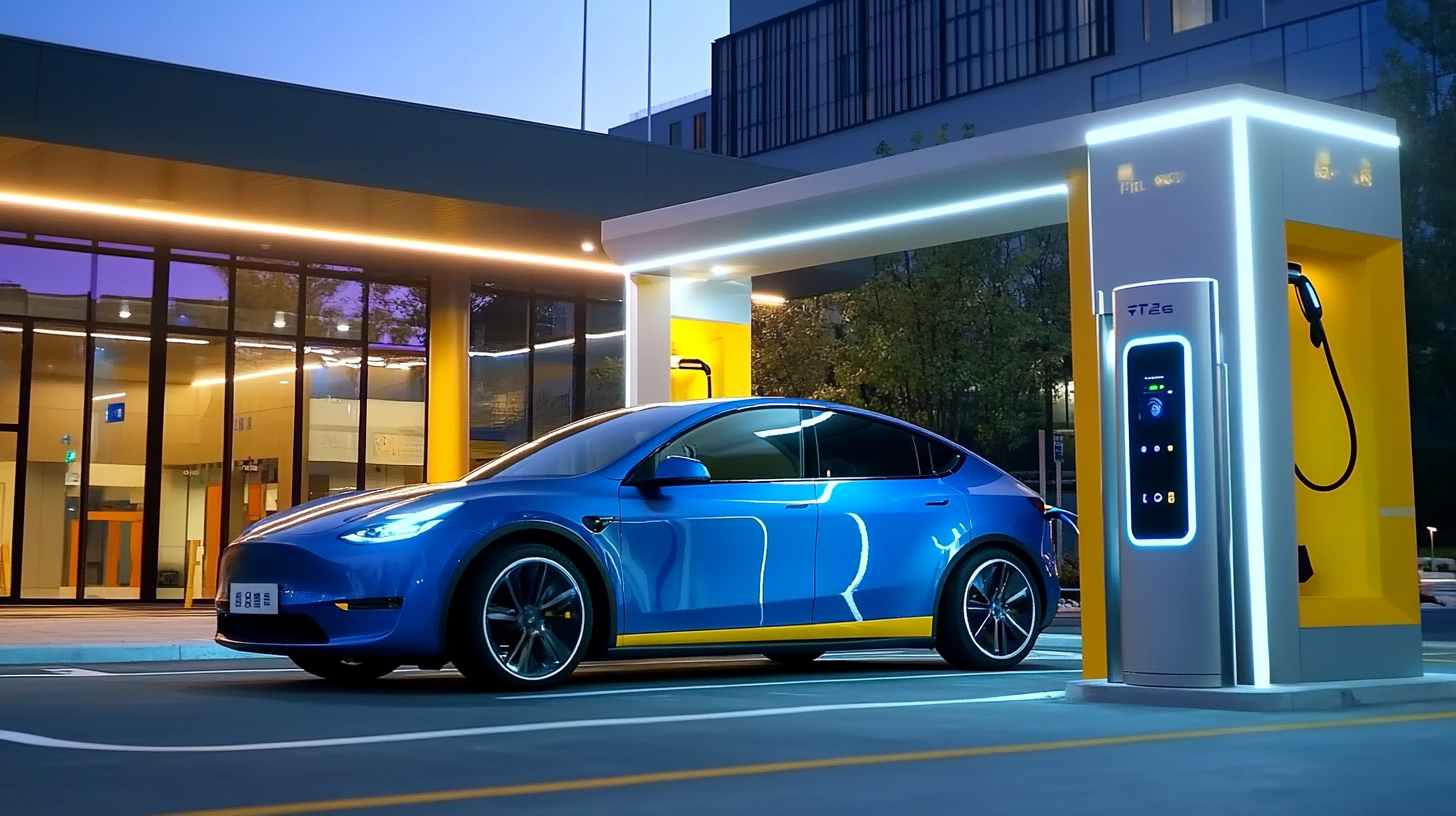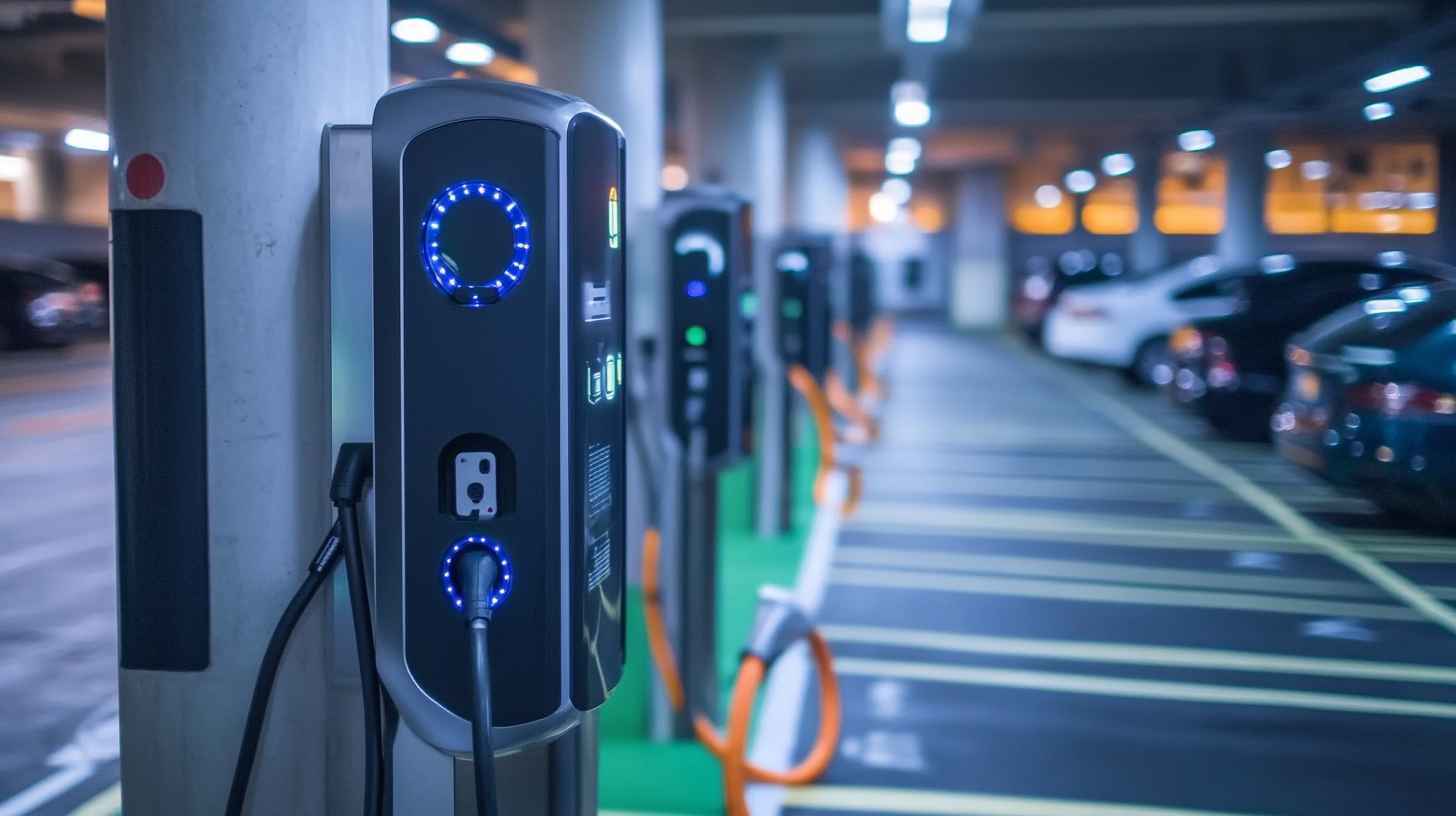 As the demand for electric vehicles (EVs) continues to surge globally, the evolution of smart charging solutions has become paramount for meeting the needs of consumers and businesses alike. According to a report by ResearchAndMarkets, the global electric vehicle charging station market is projected to reach USD 142 billion by 2027, growing at a CAGR of 32.5% from 2020. This growth presents a significant opportunity for Charging Station Suppliers, particularly those focusing on high-quality manufacturing processes like those in China. With the country being a global leader in -EV technology and production, the emphasis on quality and innovation is essential for these suppliers to maintain a competitive edge in the international market.
As the demand for electric vehicles (EVs) continues to surge globally, the evolution of smart charging solutions has become paramount for meeting the needs of consumers and businesses alike. According to a report by ResearchAndMarkets, the global electric vehicle charging station market is projected to reach USD 142 billion by 2027, growing at a CAGR of 32.5% from 2020. This growth presents a significant opportunity for Charging Station Suppliers, particularly those focusing on high-quality manufacturing processes like those in China. With the country being a global leader in -EV technology and production, the emphasis on quality and innovation is essential for these suppliers to maintain a competitive edge in the international market.
As we delve into the future of smart charging solutions, understanding the trends and challenges that lie ahead will be crucial for global buyers looking to leverage these advancements.
As the global demand for electric vehicles (EVs) continues to rise, the development of smart charging solutions has emerged as a pivotal focus for industry stakeholders. Emerging technologies such as artificial intelligence (AI), the Internet of Things (IoT), and blockchain are significantly influencing the landscape of smart charging. AI algorithms are being employed to optimize charging schedules based on energy demand and renewable energy availability, ensuring that EV users can charge their vehicles at the most cost-effective and environmentally friendly times. This not only enhances user experience but also contributes to grid stability.
Additionally, IoT devices are enabling real-time monitoring and management of charging stations, allowing for seamless integration into smart city infrastructures. As these technologies evolve, we are witnessing the rise of advanced user interfaces that provide personalized charging recommendations and alerts.
Blockchain technology is also playing a crucial role in securing transactions and streamlining payment processes across multiple charging networks, enhancing convenience for consumers. These innovations are collectively shaping a future where smart charging solutions are not just systematic but dynamic, accommodating the diverse needs of global buyers in the rapidly changing automotive landscape.
The choice between AC and DC fast charging solutions is pivotal for the future of electric vehicle (EV) infrastructure, particularly as the industry shifts toward widespread adoption. AC charging, typically used for home and workplace settings, offers a slower but cost-effective solution for daily use, making it suitable for vehicles that remain parked for longer durations. On the other hand, DC fast charging is essential for long-range travel, allowing EVs to recharge from nearly empty to 80% within a remarkably short time, crucial for highway journeys where charging options may be limited.
With advancements in technology, the competitive landscape between AC and DC chargers is evolving. For instance, systems now harness charging capabilities exceeding 350 kilowatts, making rapid charging more accessible and efficient. Additionally, the ongoing reduction in the purchase prices of electric vehicles makes charging costs a significant factor in consumer choice. Comparing the levelized costs of electric vehicle charging options reveals that both charging types have distinct advantages tailored to different application scenarios—where fast charging solutions shine in transit and AC options offer practicality for everyday use. The decision on which charging solution to adopt will depend largely on the consumer's specific needs, travel patterns, and available infrastructure, making informed comparisons vital.
As the electric vehicle (EV) market continues to expand, the focus on smart charging solutions becomes increasingly critical. While the initial investment in smart charging infrastructure can be substantial, reports suggest that the long-term savings significantly outweigh these upfront costs. According to a recent study by BloombergNEF, the total cost of ownership for electric vehicles is projected to drop by 50% by 2026, thanks largely to advancements in charging technologies that optimize energy usage.
Investing in smart charging systems not only leads to lower electricity bills through demand response features but also enhances grid stability. A report from the International Energy Agency (IEA) indicates that smart charging can reduce peak demand by up to 30%. Consequently, businesses and consumers can benefit from lower energy rates and government incentives that often accompany smart technology implementation. Furthermore, as more jurisdictions implement carbon pricing, the long-term cost savings from switching to smart charging solutions will become even more pronounced, making them not just an environmentally responsible choice, but a financially savvy one as well.
As the electric vehicle (EV) market continues to expand, the importance of user-friendly mobile applications for smart charging solutions cannot be overstated. Unlike conventional charging stations, modern smart charging networks offer a range of features designed to enhance the user experience, ensuring drivers have access to the information and services they need at their fingertips. Key functionalities such as real-time charging station availability, payment processing, and navigation can significantly influence a buyer's decision on which network to utilize.

When comparing leading smart charging networks, app features often vary considerably. Some platforms excel in providing robust user interfaces that incorporate smart routing capabilities, helping drivers to locate the nearest charging stations efficiently. Others may offer rewards programs, letting users earn points for frequent use or successful referrals. Furthermore, the ability to track energy consumption and costs directly through the app can provide valuable insights, allowing users to optimize their charging habits. As buyers evaluate these mobile solutions, the focus on user experience will undoubtedly play a critical role in shaping the future of smart charging solutions.
As the world increasingly shifts towards electric vehicles (EVs), the importance of sustainable smart charging solutions becomes paramount. Evaluating the environmental impact of these technologies involves looking beyond mere emissions reductions; it also includes assessing the sourcing of materials, energy consumption during the manufacturing process, and end-of-life recycling options. Innovative charging solutions that utilize renewable energy sources, such as solar and wind, significantly reduce the carbon footprint associated with EV charging, making them more appealing to eco-conscious consumers.

Tips for Evaluating Smart Charging Solutions:
The future of smart charging is not only about enhancing convenience and accessibility but also about ensuring that these technologies contribute positively to environmental sustainability. By prioritizing sustainable practices, buyers can support the development of greener infrastructures that benefit both consumers and the planet.
